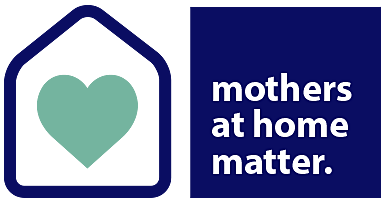
Mothers: Changing the conversation.
Valuing care.
We are all governed by ideas, often assumptions taken for granted which we little question but which for the most part we are held hostage to.
The self esteem of stay at home mothers can be low. This is hardly surprising when you look at prevailing ideas surrounding this role: staying at home is a ‘lifestyle choice’ for the ‘sepia-tinted’, ‘yummy mummies’ who are ‘idle’ and ‘wasting their education’. Childcare is spoken of as a ‘burden’ and raising children as ‘obstacles’ to mothers' careers.
But what could happen if we believed raising children was not an obstacle or burden but a worthy end in itself? What difference would that make both to those doing the caring and to those being cared for?
What if we could measure a person’s worth to society in another measurement than Gross Domestic Product which categorises mothers at home as ‘uneconomic units’?
What if we believed that gender equality could be achieved not through a narrow income measurement but by valuing the role of care - giving and paying those in the caring professions a decent wage and supporting family care properly?
MAHM believes:
Equality also lies in valuing the role of care-giving, which is a key priority for many mothers.
Raising the next generation is an important contribution to society.
We save costs to the economy in minimising the adverse mental & emotional health of children.
Mothers develop a wide range of skills in raising children which makes them valuable to employers on returning to work.
MAHM’s challenge to government: What is the social and economic cost of failure to care?
If we tried to estimate our contribution in monetary terms, the ONS calculates the value of informal childcare as £343 billion per year —23% of GDP!
“Too much and for too long, we seemed to have surrendered personal excellence and community values in the mere accumulation of material things. Yet the gross national product does not allow for the health of our children, the quality of their education or the joy of their play....It measures neither our wit nor our courage, neither our wisdom nor our learning, neither our compassion nor our devotion to our country, it measures everything in short, except that which makes life worthwhile.”
— Robert Kennedy 1968
Useful links.
The MAHMifesto.
Mothers at Home Matter is the voice for the many mothers who want to be at home to bring up their children yet who are so rarely represented in public debate or in policy circles. This leaflet outlines our aims and campaigns.
Mothers Matter: Guilt
In this episode, Erica Komisar, psychoanalyst, parent coach and author, explains the essential role mothers play in their children's first three years, and beyond and outlines the opportunity that the brain's development between ages nine and twenty-five presents.
Mothers Matter: Anxiety
Why is anxiety so prevalent these days, and how can parents help their children who suffer from it? In this episode, Erica Komisar, psychoanalyst and parent coach, answers these questions and many more. We discuss the impact of social media on young people, how to help children and adolescents grow into healthy adults, and the best ways to encourage your young people into positive behaviours.
Further research.
Why being there matters.
There is an increasing devaluation of mothers in the world. Motherhood has lost status. Mothering is not seen as valuable work because it is not paid, but what could be more valuable than raising emotionally healthy children? This is Erica Komisar’s talk at our 2017 conference.
How to enjoy our teens.
At our 2019 conference with its theme of Care, Maria Kemp gave plenty of practical advice and words of wisdom on how to raise and enjoy our teenage children.
Motherhood changes your brain.
From joy and attachment to anxiety and protectiveness, mothering behavior begins with biochemical reactions. What happens in a woman’s brain when she becomes a mother?
The cost of love.
The financial consequences of insecure attachment in antisocial youth. Society would benefit from taking a public health approach to promoting good-quality caregiving to improve the wellbeing of children and young people and reduce their cost on society.
Book: Being There.
In this important and conversation-starting book, veteran psychoanalyst, Erica Komisar, offers a provocative and compelling premise: a mother's emotional and physical presence in her child's life - especially during the first three years -means that her child has a greater chance of growing up emotionally healthy, happy, secure, and resilient.
Book: Why Love Matters.
Sue Gerhart explains why loving relationships are essential to brain development in the early years, and how these interactions can have lasting consequences for future emotional and physical health.


